

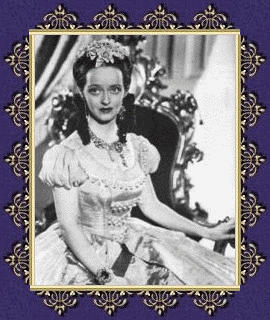
Muni wielded a lot of power at Warners and was obsessively involved in every aspect of the production, including the screenplay. Muni had the benefit of viewing the edited first portion of the film before going in front of the cameras to play Juarez and, he underplayed his role trying to offset Davis' scenery chewing. The result is an incredibly low key portrayal, that perhaps could have benefited from a little more spark.
![]()

![]()

This sprawling Warner Brothers epic offers a strong cast, and tells the behind-the-scences saga of a pivotal time in Mexican history. Although sagging slightly under it's own weight, it is still a very watchable film. Benito Pablo Juarez was to Mexico what Abraham Lincoln was to the United States. Both of them lived at the same time, and Juarez was profoundly influenced by the North American president. Like Lincoln, Juarez was physically homely, yet full of wisdom and spiritual clarity. Juarez was well loved by his people, and was the spearhead in their quest for independence.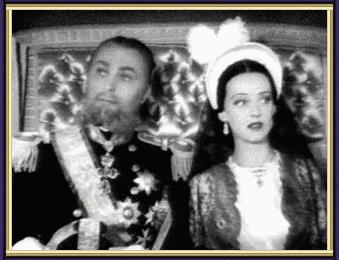
The film opens with Claude Rains, playing the evil Napoleon III, appointing Archduke Maximilian von Habsburg of Austria, portrayed by Brian Aherne, as emperor of Mexico. Napolean has staged a false election which forces the new monarch on the Mexican people, who they have never seen. Maxmilian and wife Carlota, played to the hilt by Davis, journey to Mexico, escorted by an army commanded by Donald Crisp's character. Meeting the royal couple are thousands of jubilant peasants in Mexico City, but the royal couple is again deceived by the French, who have staged the reception.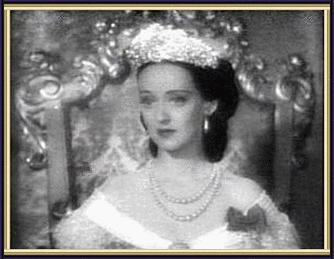
Paul Muni, in a somber and heavy performance, plays the duly elected president of Mexico, Benito Juarez. He leads his people in revolt against the monarchs imposed upon them by Napolean. In an attempt to pacify the Mexican people, Maxmilian offers Juarez the powerful position of Secretary of State, who promptly rejects it. Then, he tries adopting a native prince in an elaborate ceremony to win the peoples support.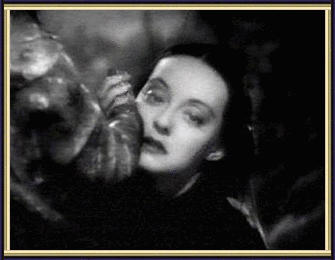
Unfortunately, when they take their new son to the balcony of their palace to show to their new subjects, a tremendous explosion rocks the area. Factions loyal to Juarez blow up a huge ammunition dump of the French army. Maxmilian's response to this outrage is to sign a shoot-to-kill order for those found with weapons. Wholesale executions ensue, and soon the few supporters they have, turn against the monarchy.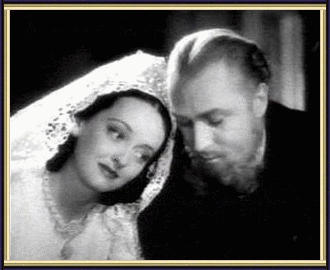
A full-scale revolution breaks out, with the US ordering the French army to leave Mexico under the Monroe Doctrine. Bad escalates to worse, and a coup results that ends with the disposal of the von Hapsburg's a' la Nicholas and Alexandra. In the process we get to see Davis portray the Empress coming unglued as it were, and descend into madness. Juarez was unique at that time in that it was shot as two separate films. The Aherne-Davis story and the Muni portion were edited together to create the final product.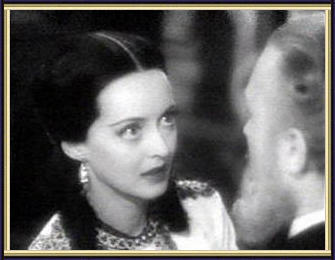
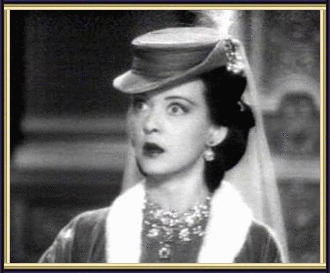
Davis was very enthusiastic about her involvement in the project when it was first proposed in 1937, and was eventually miffed when she realized her part had basically been eclipsed by subsequent editing. An incredibly vivid scene remains, where Carlotta goes mad after confronting the scheming Napolean. It would probably make more sense if her part had not been compromised through editing. But, by it self as it plays out in the finished product, it seems a little disjointed. You wonder how she went so crazy so fast. Davis' descent into madness is still valid, and worth a viewing. Also, Gale Sondergaard is very convincing as the villanous Empress Eugenie.
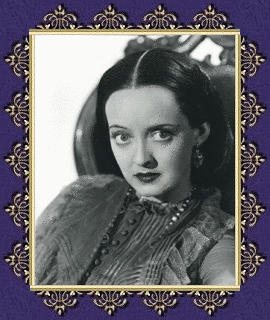



- William Dieterle - Director
- Henry Blanke - Producer
- Hal B. Wallis - Producer
- John Huston - Screenwriter
- Aeneas MacKenzie - Screenwriter
- Wolfgang Reinhardt - Screenwriter
- Tony Gaudio - Cinematographer
- Erich Wolfgang Korngold - Composer (Music Score)
- Warren Low - Editor
- Anton Grot - Production Designer
- Leo F. Forbstein - Musical Direction/Supervision
- Orry-Kelly - Costumes/Costume Designer


- Best Cinematography (nom) - Tony Gaudio - Academy
- Best Supporting Actor (nom) - Brian Aherne - Academy
- New-York Times 10 Best Films (win)
- Film Daily 10 Best Films (win)








